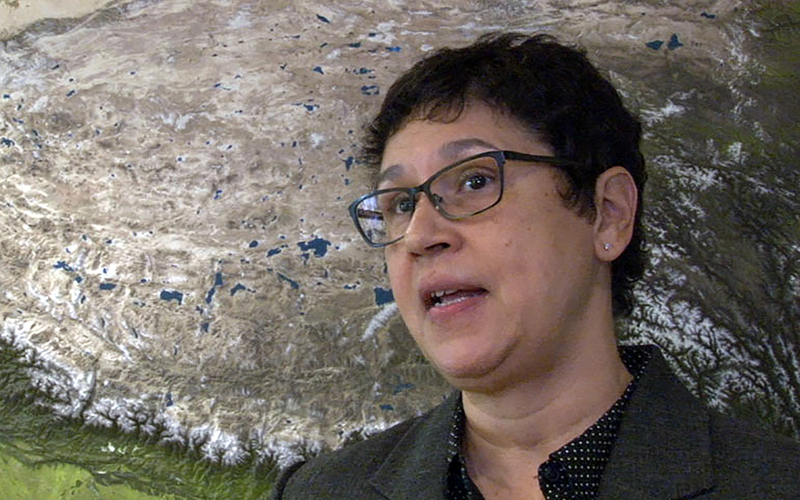
Robin Baskin McNulty, a program coordinator for entrepreneurship and innovation at Arizona State University, said she experienced harassment in the workplace in her career. (Photo by Meghan Finnerty/Cronkite News)
PHOENIX – When Susan Fowler detailed the atmosphere at Uber company headquarters in her viral February blog post, the former Arizona State student and engineer gave voice to a serious issue in the tech industry: harassment of female workers in male-dominated companies.
And women in science, technology, engineering and math industries understood.
Robin Baskin McNulty, a program coordinator for entrepreneurship and innovation at Arizona State University, said harassment in the workplace is something she experienced early on in her career.
“It’s really impacted the choices that I’ve made in my career as a result, because I’m not going to go into a job in which I have to be a trailblazer.”
Fowler described having her reports of sexual harassment by a male superior dismissed by human resources, and a company culture where sexism and complaints to HR were not taken seriously. She wrote about how the number of engineers who were women declined, and how she herself left the company.
“Women were transferring out of the organization, and those who couldn’t transfer were quitting or preparing to quit,” Fowler wrote. “There were two major reasons for this: there was the organizational chaos, and there was also the sexism within the organization. When I asked our director at an org all-hands about what was being done about the dwindling numbers of women in the org compared to the rest of the company, his reply was, in a nutshell, that the women of Uber just needed to step up and be better engineers.”
Fowler declined to comment for this story beyond the information in her blog post.
Uber CEO Travis Kalanick responded to Fowler’s blog post on Twitter, calling what was described in the post as “abhorrent and against everything we believe in.” But Fowler’s experience isn’t uncommon for women working on STEM, a male-dominated field.
(Video by Meghan Finnerty/Cronkite News)
According to a 2016 report from the National Science Foundation, women made up only 29 percent of the science and engineering workforce in 2013 and only 15 percent of engineers that year. At Uber, 84.6 percent of the technology employees are men, while only 15.4 percent are women, according to the company.
Nannina Angioni, a business, labor and employment attorney in California, said the ratio of men to women employed throughout a company is one of the first things she looks into when she receives a complaint about gender-based discrimination in the workplace.
According to a June 2016 report released by the U.S. Equal Employment Opportunity Commission, around one third of the 90,000 charges received involved workplace harassment allegations.
And while many companies have policies about discrimination set forth in their handbook, it is put into practice less frequently. But, Angioni noted, diversity can help harassment and discrimination claims from arising in the first place.
“Diversity at all levels, across from bottom to top,” Angioni said. “You have significantly less harassment claims, you just don’t see it.”
Brianna Giese, a communications professor at Aurora University, said communication within a company is a major factor in workplace culture.
“There are steps a company can do to prevent, it really starts with the culture of a company,” Giese said.
But sexism in the workplace isn’t just limited to sexual harassment.
Phoebe Newell, a student at Arizona State and member of ASU’s Women in STEM club, said dealing with sexism in the workplace is something that is discussed on the collegiate level and that students are made aware of. She said sexism doesn’t just have to do with sexual harassment, but can come down to comments made to women.
“Sometimes there are comments about, ‘oh you want to do med school, grad school, that takes so long. How old are you going to be when you have kids?'” Newell said. “But for a man, they wouldn’t ask something like that.”
Angioni pointed out that in most cases of discrimination in the workplace, it’s not an “overt thought” to discriminate, but it still happens.
“If it’s unintentional discrimination, it’s still discrimination,” she said.